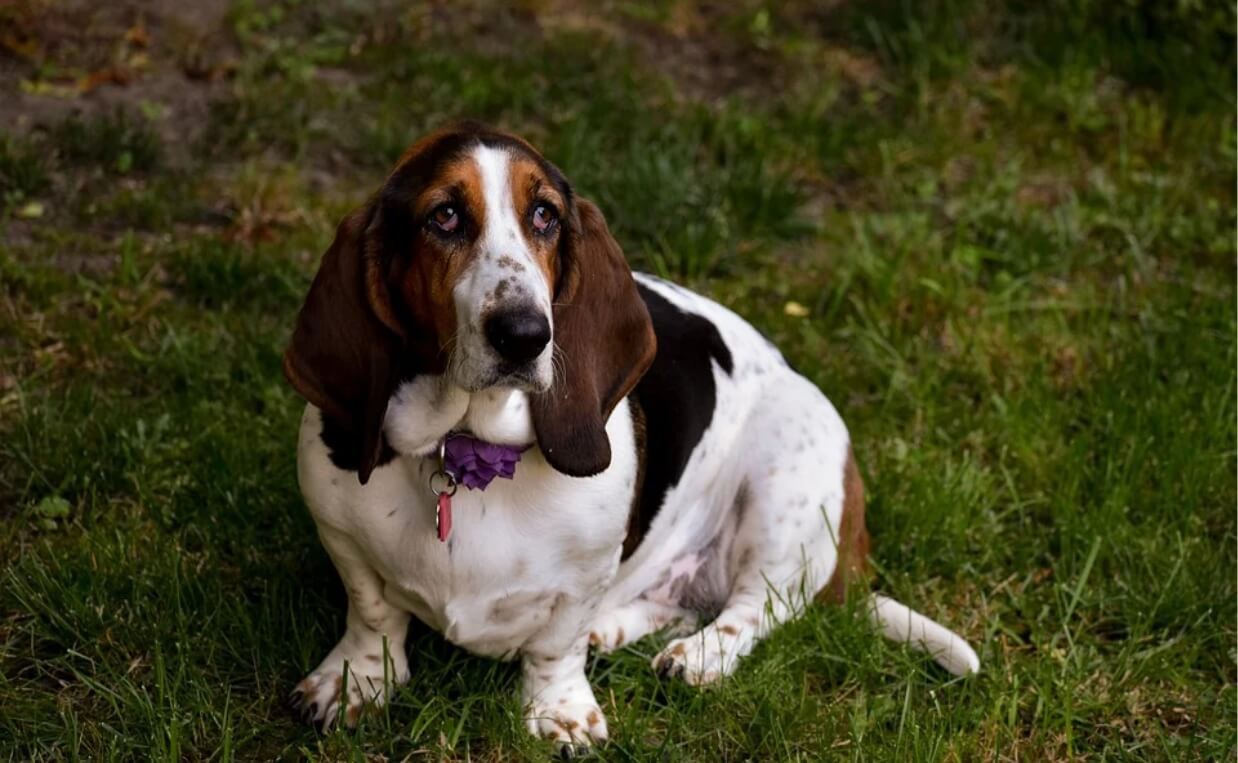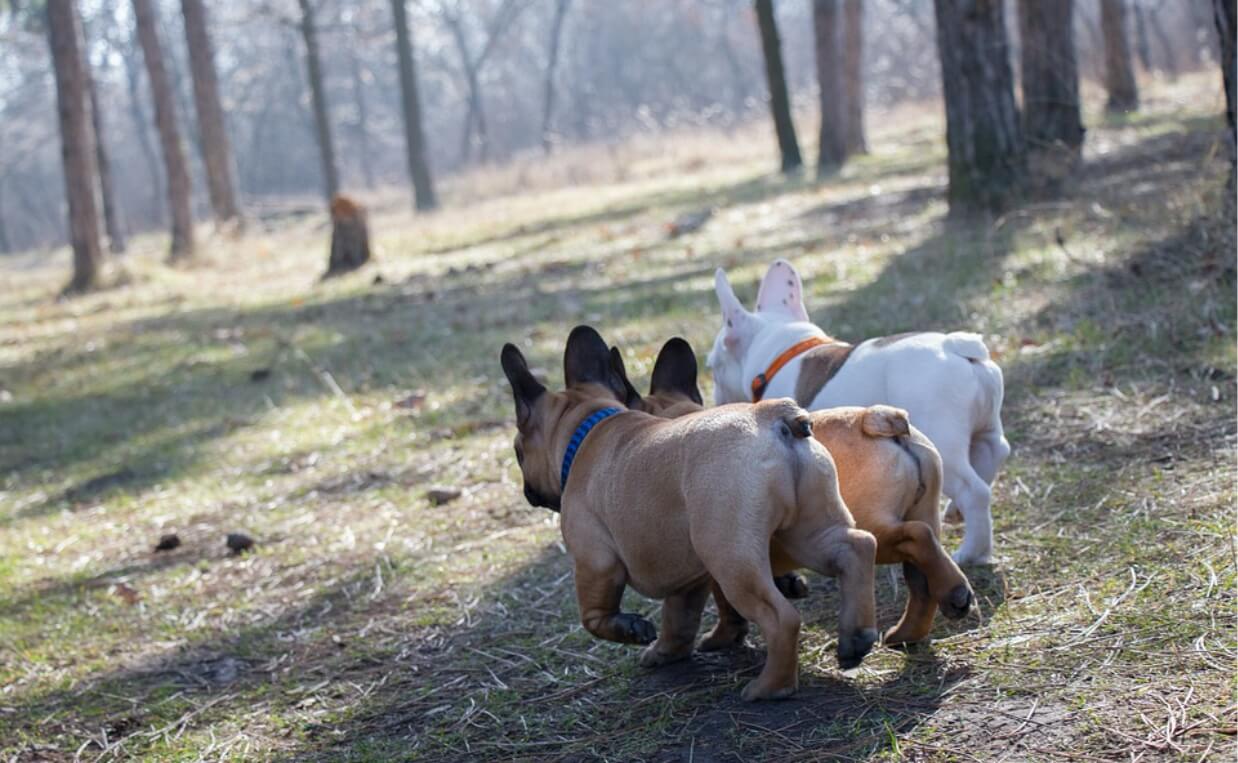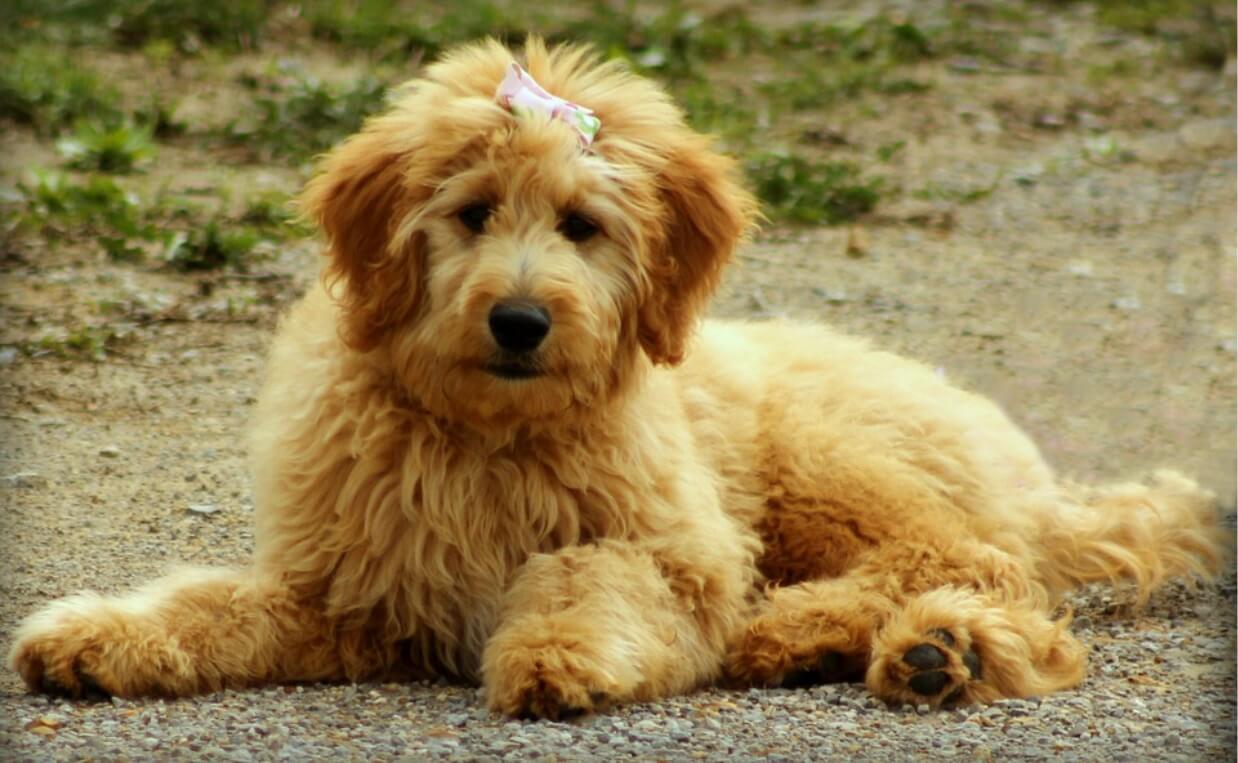
If you notice a strange, metallic-like odor coming from your dog, it could be cause for concern.
But why does your dog smell like iron? How can you solve the problem? And what can you do to prevent the problem happening again in the future?
Keep reading this article to find out!
Metallic smelling breath
There are several reasons your dog’s breath might smell like iron.
Dental problems
“Dog breath” is usually caused by canine periodontal disease or gingivitis.
Usually, bad breath in dogs is a fishy smell rather than metallic. However, in severe cases where the gums are bleeding, your dog’s breath may have a coppery, metallic odor.
In any case, you must seek veterinary advice right away, as your dog could be in pain. If your dog is diagnosed with either canine periodontal disease or gingivitis, dental work is necessary to prevent serious health complications.
Read more: 5 Reasons Your Dog Has Bad Breath

Kidney disease
A metallic or ammonia odor on a dog’s breath is a common symptom for kidney failure. The iron smell is caused by a build-up of waste products and toxins generally filtered by the kidneys.
If you think your dog has a metallic or ammonia-like odor on his or her breath, please call your veterinarian right away, as kidney failure is fatal if not treated urgently.
Internal bleeding
Blood can smell very metallic, especially if it’s fresh.
If your dog has a condition causing bleeding in the stomach or respiratory tract, you might detect an iron-like smell on his or her breath. Generally, your dog will display other symptoms, such as lethargy and depression.
Internal bleeding is a severe condition, requiring emergency veterinarian care.

Anal glands
Impacted anal glands are, by far, the most common condition causing your dog to smell like iron.
What are anal glands?
Anal glands are small, kidney-shaped sacs located on either side of your dog’s anus between the smooth rectal muscle and external anal sphincter.
The anal sacs are lined with cells containing sebaceous (oil) and sweat glands; these cells produce a stinky liquid that smells like a mixture of iron and rotten fish.
What is the purpose of anal glands?
The purpose of anal glands is to allow dogs to scent mark their territory by leaving their own unique odor in their urine or stool.
The anal glands also are a form of communication between dogs. The anal glands generate a personal smell, like a canine fingerprint. When dogs sniff each other’s backside, they can tell whether the stranger is a known associate, a friend, an enemy, and even if they will get along with each other.

Impacted anal glands
Under normal conditions, the anal glands are emptied when your dog has a bowel movement. However, if the anal sacs don’t empty or become impacted, your dog will emit an iron-like smell.
Over time, the secretions inside the anal glands begin to thicken. This causes the smell as well as pain for your dog. The longer the impaction is not treated, the more painful the condition becomes. Left untreated, your dog’s anal glands can rupture, causing your dog a world of pain.
Possible causes of impacted anal glands
Several risk factors can cause a dog to suffer from impacted anal glands.
- Obesity
- Diarrhea
- Food allergies
- Skin conditions involving yeast or bacteria
- Physical abnormalities
- Obstruction of the anal gland duct caused by muscle inflammation or tumor
- Infestation of Demodex, Sarcoptes, or other species of skin mites
- Senior dogs with limited mobility compromised by arthritis or joint inflammation

How to prevent anal gland impaction
Unless your dog has a physical abnormality that prevents the anal sacs from fully emptying, there are two main ways to prevent the problem from occurring.
Help your dog lose weight
If your dog is overweight, you need to help your dog lose weight. The best way to do this is to meet with your veterinarian to develop a suitable exercise and feeding program.
Obesity may present many risks, including impacted anal glands.
Feed your dog a balanced diet
Certain breeds, including Goldendoodles, can be prone to food allergies. Dogs who suffer from chronic upset stomachs and loose stools are prone to developing impacted anal sacs. So make sure you feed your dog a properly balanced diet your dog can tolerate.
It’s a good idea to ask your veterinarian to recommend a food specially formulated for dogs with food sensitivities to prevent conditions associated with food allergies.

Breeds prone to impacted anal glands
Certain breeds are prone to anal gland impaction. Small breeds, such as Chihuahuas and Poodles tend to have this issue more than larger dogs.
Signs of anal gland impaction
If you notice your dog is smelling like iron, it’s quite likely the problem is his or her anal glands.
Other telltale indicators include:
- Scooting along the ground
- Excessive licking of the rear end
- Reluctance to sit down
- Chewing on the base of the tail
- Blood in the stool
- Swelling under the skin around the dog’s rectum
- Bloodstains on the dog’s bedding or ground where the dog has been laying
If you think your dog has impacted anal glands, take them to see your veterinarian right away.
What is the treatment for impacted anal glands?
The treatment for impacted anal glands is to gently squeeze each impacted gland to remove the slimy, foul-smelling obstruction inside. When the anal glands are expressed, it will immediately relieve your dog’s discomfort, get rid of the odor and other symptoms will disappear almost immediately. If the glands are infected, your veterinarian may prescribe a course of antibiotics for your dog.
This simple procedure only takes a few minutes and is something veterinarian and some professional groomers routinely treat.

Final Thoughts
Next time you smell metallic or iron odors on your dog, do a quick check over their body and mouth for signs of a possible cause. The conditions listed in this article are serious or can become serious if left untreated, so the best course of action is to contact your veterinarian.

 Grain-Free Diets and Heart Disease in Dogs
Grain-Free Diets and Heart Disease in Dogs 10 Tips to Get Your Dog to Take Medicine
10 Tips to Get Your Dog to Take Medicine What Every Dog Owner Needs to Know About Canine Anemia
What Every Dog Owner Needs to Know About Canine Anemia What You Need to Know About Trazodone for Dogs
What You Need to Know About Trazodone for Dogs What Should Your Dog’s Poop Look Like?
What Should Your Dog’s Poop Look Like?






Our female dog has been having a slight bloody liquid fluid iron smell vaginally…
Any thoughts to what this might be from?
I keep researching but haven’t quite figured it out and I’m perplexed.
She had a severe allergic reaction a few months ago to some food and duck treats We remove them and put her on a steroid… And just recently took her off the steroid thinking that might be the reason.
She had just had a cycle not long ago before the allergic reaction, and this seems similar to her cycle but different.
Thank you for sharing your concerns with us, Sherry. Unfortunately, we are not veterinarians (we are a dog boarding, daycare and grooming service) and cannot make any recommendations for your dog’s health care. I suggest you have your dog seen by a certified veterinarian as soon as possible.
My 12 week old puppys breath smells of iron is this commen for pups
A veterinarian is best able to assess health concerns about your puppy. When puppies are about four to seven months old, their baby teeth will start to fall out. As their gums bleed, pooled blood can cause an unpleasant smell, similar to pennies. It should go away in a few weeks. However, there could be other causes of a metallic smell on a puppy’s breath, so it is best to have your puppy seen by a veterinarian to rule out other issues, especially if the smell persists. Enjoy your puppy and thanks for stopping by the Canine Campus blog!